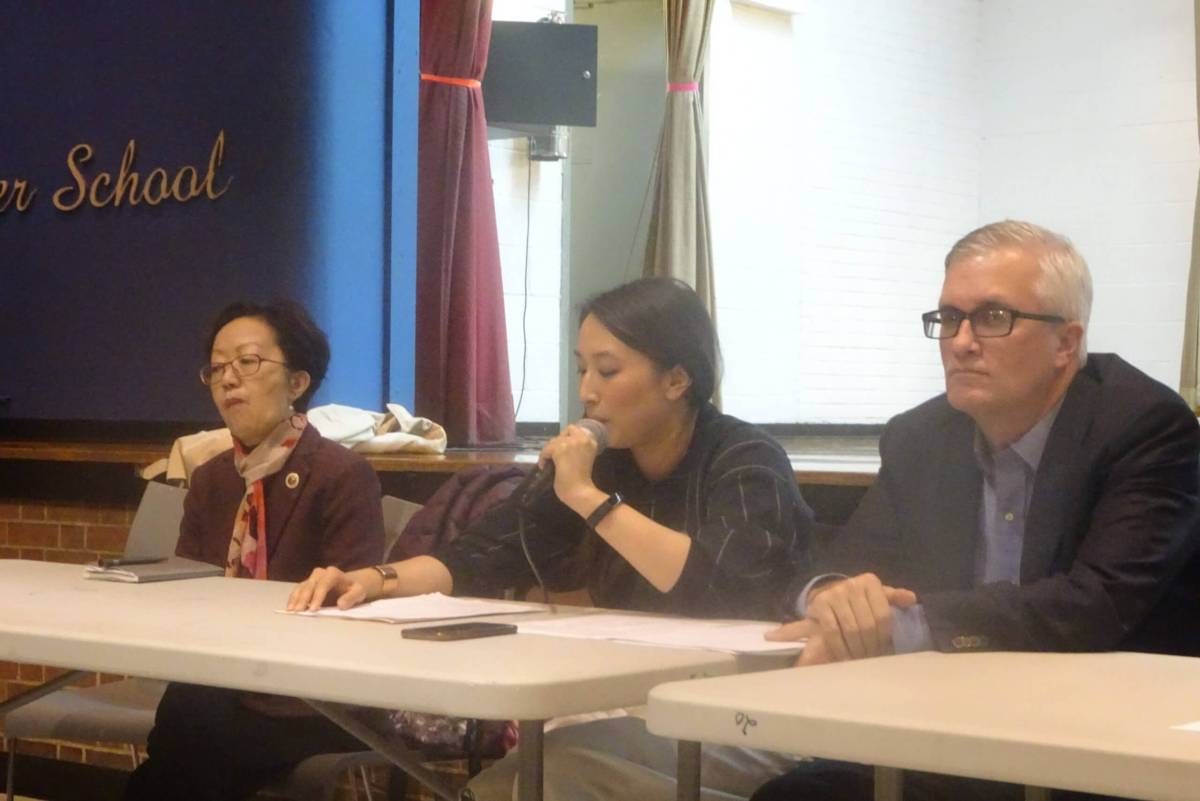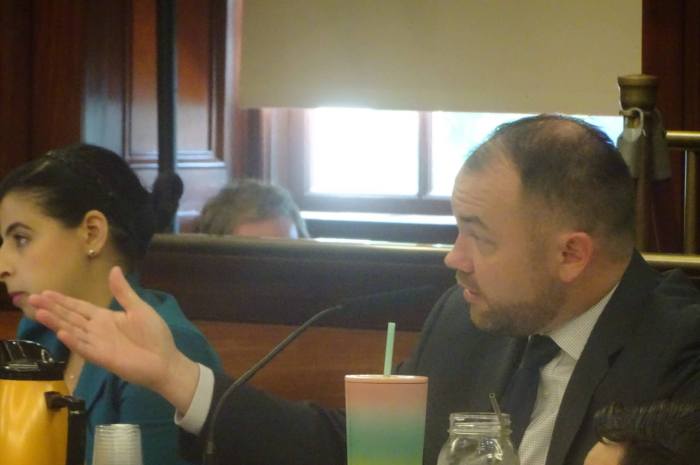Aging, whether we like it or not, is a fact of life. Eventually, we all succumb to the burden of old age, and with that burden comes a host of new, persistent medical needs.
This was the key point raised last night by Assemblywoman Yuh-Line Niou (D-Chinatown, Financial District), at a forum about two new health facilities slated for development in Manhattan.
“I think one thing we don’t talk about enough is that we all age,” said Niou. “That’s why the services behind the new Rivington House development are so critical. It needs to be a permanent place of respite and care for us. It provides stability and safety for our most vulnerable community members.”
The forum took place at P.S. 20, 166 Essex St. – about seven minutes away from one of the planned developments. Assemblywoman Yuh-Line Niou, State Senator Brian Kavanagh (D-Lower East Side) and Council Member Margaret Chin (D-Battery Park City, Chinatown) hosted the event.
The discussion centered around two new Mount Sinai facilities slated for development: a behavioral health facility at the Rivington House on the Lower East Side, and a new hospital on 14th Street and Second Avenue. Most of the discussion that evening revolved around the former.
The electeds began by recounting the history of the Rivington House. The facility, which opened in 1995, began as the nation’s first nursing home for HIV/AIDS patients. It existed as such until 2015, when the property was sold for $116 million after the City lifted several deed restrictions on the building.
“There’s real history within those walls,” said Yuh-Line Niou. “We lost a tremendous community asset when a series of unfair backroom deals with no transparency resulted in its sale. The City lifted multiple historic deed restrictions on what should have been permanently public land. I find that very shameful.”
On that note, the lawmakers showed tentative optimism towards Mount Sinai’s plans for the property. Margaret Chin pointed out that the Rivington House is centered in a community with a sizable homeless population and a growing senior population – demographics who need the services offered by a behavioral health clinic more than anyone.
“We have lost so many nursing home beds in the Lower East Side, and the senior population is growing,” said Chin. “They need support when they get to that age. So we want to see how can we work together to facilitate that.”
Afterwards, the lawmakers gave the floor to three representatives from Mount Sinai. The three of them spent an hour taking questions from the audience. At the helm was Jeremy Boal, President of Mount Sinai Downtown.
Like the elected officials hosting the event, the attendees wanted reassurance that the behavioral clinic would effectively service the needs of the neighborhood. Questions ranged from the details behind the developments’ certificates of need to how the facility will account for the increase in traffic.
The audience’s biggest concern, however, was whether the neighborhood’s seniors will be able to afford the services provided. Mount Sinai facilities do not accept insurance from United Healthcare – a company with 70 million members – for behavioral health services.
“Lots of people are on United,” said Mae Lee, Chair of Health and Human Services for Community Board 3. “Yes, [Mount Sinai hospitals] accept Medicaid and Medicare, but everyone accepts Medicaid and Medicare. Including one of the nation’s biggest healthcare providers is also important. Countless New Yorkers rely on that provider. The reality is that there are a lot of nice services being offered, but it’s no good if you can’t afford them.”
In response, Boal assured the audience that they are not a “high-end” provider, pointing out that they take insurance from plenty of companies that pay less than United. The facility, he said, will not be priced out of reach for most of the surrounding community.
“We are not a high-end provider; we take insurance from everybody,” said Boal. “The United issue is specific to the fact they’ve been wrongfully denying their patients coverage for healthcare services. We’re in a tough position, because we want to treat everybody, but we think that this an issue where we’ll need help from city agencies.”
A second forum about the new facilities will take place on Monday, Nov. 4 at the Sirovich Senior Center, 331 East 12th St.


































